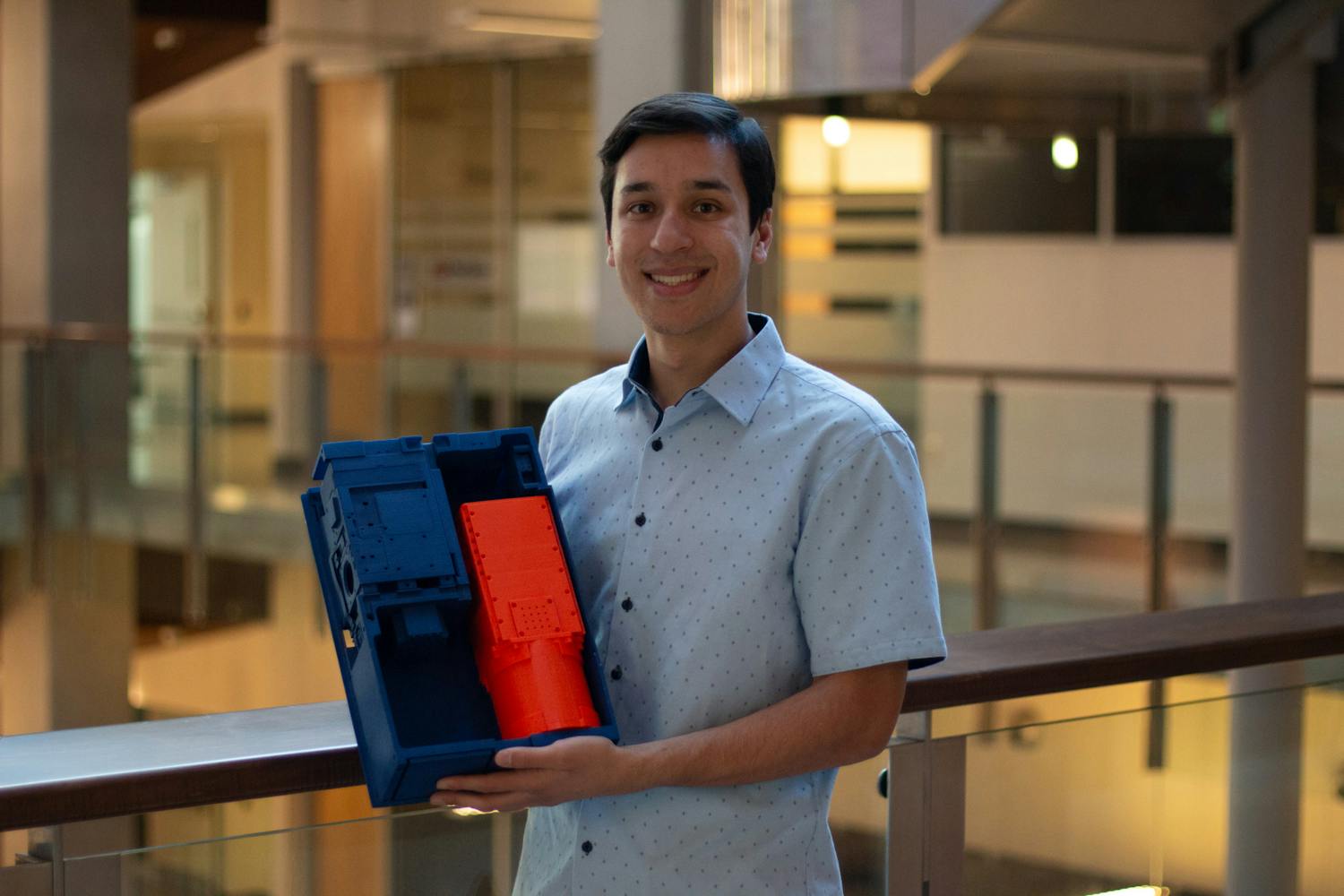Growing up Muslim is truly an all-encompassing experience. It’s not as simple as going to the mosque every Friday and calling it a day.
Instead, it is a way of life — every aspect of my life is influenced in some way by Islam. My identity as a Muslim is marked not just by the God I worship, but also by my everyday actions.
A big aspect of my life was and still is attending Friday prayer, or Jummah. I would typically go to the masjid or mosque around noon for prayer and a sermon. Afterward, I would grab lunch with my friends and other members of the community.
My father would also often tag along, and it strengthened my relationship with him.
Jummah offered me nourishment for my soul in regards to spirituality and nourishment for my heart by being able to spend time with my community.
The pandemic, as much as it has already been said, is unprecedented. It has undoubtedly had a massive negative impact on my spirituality.
The pandemic hit when I was 16, at the start of my formative years; it was a crucial point in my religious timeline. This is when I first had the independence to make my own decisions, especially when it came to my belief system.
Whether or not to fraternize, drink or party: These were all integral decisions that would make or break me as a Muslim.
Growing up with the loving and caring community within my religion, I would often receive guidance when handling these difficult decisions.
Coming from a religion of peace and unity, I valued this sense of community in Islam — it had become integral to my way of life.
The pandemic stripped me and many others of this experience as we could no longer socialize the way we typically would after prayer.
Being confined to my home for the greater portion of the year, my transition into adulthood became all the more difficult.
At the beginning of the pandemic, prayer was completely virtual. I distinctly remember how the holy month of Ramadan didn't feel the same.
Ramadan was always the most social Islam got. From waking up early to eat, to breaking my fast at Iftar, it was always filled with joyous laughter and maybe even a late-night game of basketball with friends and other community members.
Chicago, where I'm from, is a city that never sleeps, and Ramadan is a time when Muslims are working around the clock. People would be awake until dawn, eating, drinking and making merry. It was always a time when there was joy in the air.
Instead, Ramadan in a pandemic was filled with dread.
After moving to Arizona, I was able to visit the Islamic Community Center of Tempe, one of the largest mosques in the greater Phoenix area. It is a robust social hub where students, elders and working adults congregate.
It cements the idea that the mosque itself is not simply a place of worship, but rather the central hub of the community. It is the crossroads — Muslims congregate there with their varying ideas and beliefs to create a safe space for all.
I come from a suburb in Chicago, where I frequented a mosque called MCC, or the Muslim Community Center in Morton Grove, Illinois. When the proper COVID-19 regulations were imposed, I could not help but feel disheartened. It seemed like the traditions that have been in place for over 1,400 years were thrown away.
In the past, it was common practice to stand shoulder-to-shoulder in prayer. This symbolizes unity, humility and equality among all Muslims. This age-old tradition was removed from the Islamic practice due to COVID-19.
Instead, socially distanced prayer is required. This distancing has diminished the interpersonal aspect of prayer, a pillar of Islamic society. Being distanced in prayer, in addition to the pandemic, took away from my spirituality.
But having the pleasure to visit the mosque in Tempe gave me a sense of what kind of community resides at the heart of the ASU campus. When I arrived for Friday prayer, I saw the mosque had continued to follow the regulations that have been in place since the start of the pandemic.
After living in a pandemic for over two years, the initiatives in place to heal this lingering scar on the Muslim community inspire me.
At the end of Jummah on Jan. 14, Imam Omar Tawil of ICC Tempe urged all to stay safe by saying, “Stay home if you are not feeling well, Allah (SWT) will forgive you for missing prayer.”
Even locally, the community has begun to revive itself. Many Muslim students, myself included, congregate outside, rather than inside the masjid to socialize after prayer.
As Islam is beginning to heal from this scar, so is my relationship with the religion. The feeling of belonging to something larger than myself is returning to me.
It is initiatives such as this that will lead to change and reformation. If we truly would like to go back to the way things are meant to be we must get vaccinated and mask up.
It is the only way for the world to heal.
Reach the reporter at dkadri@asu.edu or follow @mecdanish on Twitter.
Like The State Press on Facebook and follow @statepress on Twitter.




